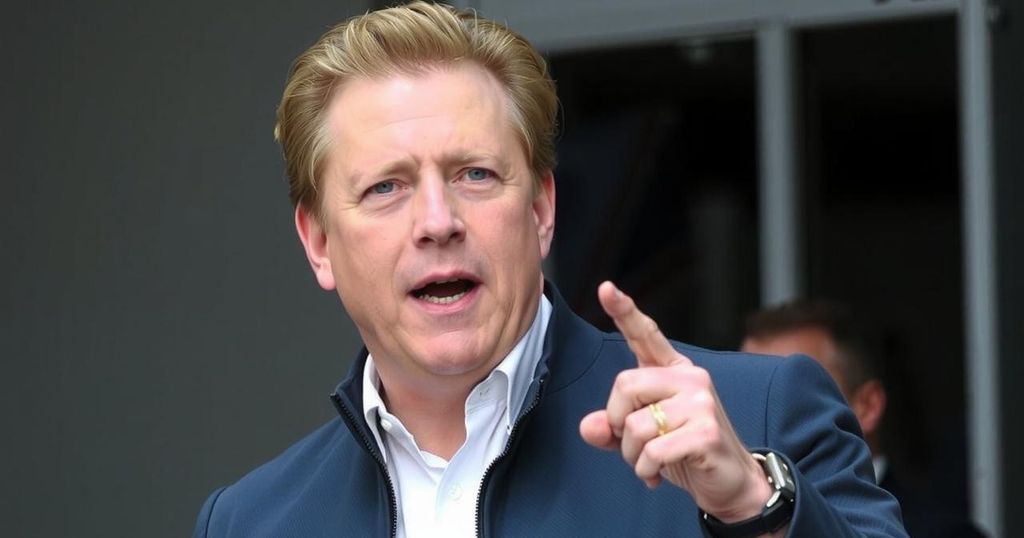The German government has accused Elon Musk of attempting to influence its upcoming elections in favor of the AfD party, calling his statements ‘the greatest nonsense.’ A spokesperson defended this viewpoint by asserting that freedom of opinion includes all expressions, even those deemed irrational. This situation underscores concerns regarding the potential impact of influential figures on democratic processes.
The German government has responded to comments made by Elon Musk, asserting that he is attempting to sway the forthcoming election by endorsing the right-wing Alternative for Germany (AfD) party through his social media activities. A government spokesperson remarked, ‘Freedom of opinion also covers the greatest nonsense,’ indicating that such statements are viewed as unfounded interference in the democratic process. This situation reflects increasing scrutiny over the influence of high-profile figures on political dynamics in democratic countries.
This incident arises in the context of heightened electoral sensitivity as Germany approaches its election period. Elon Musk’s position as a prominent public figure and CEO of multiple influential companies provides him substantial visibility, raising concerns about foreign influence in domestic politics. The German government’s immediate reaction emphasizes the importance of maintaining electoral integrity against perceived outside interferences, particularly from international entrepreneurs.
The German government’s assertion of Elon Musk’s undue influence in its electoral process highlights the ongoing tension between public discourse on social media and democratic integrity. Such responses underscore the necessity for political figures to be vigilant about how their opinions may be interpreted in electoral contexts. The situation serves as a critical reminder of the intricate relationship between technology, individual influence, and political landscapes.
Original Source: www.newsweek.com






